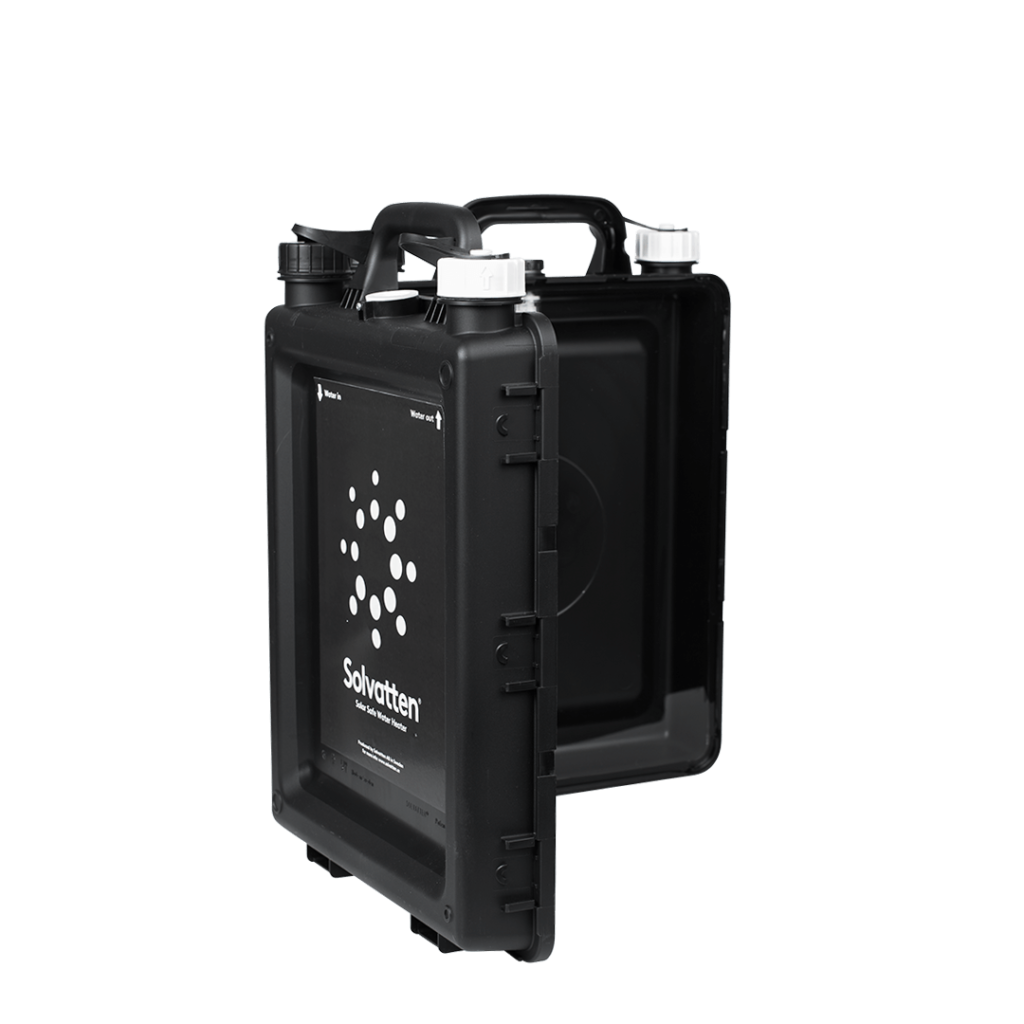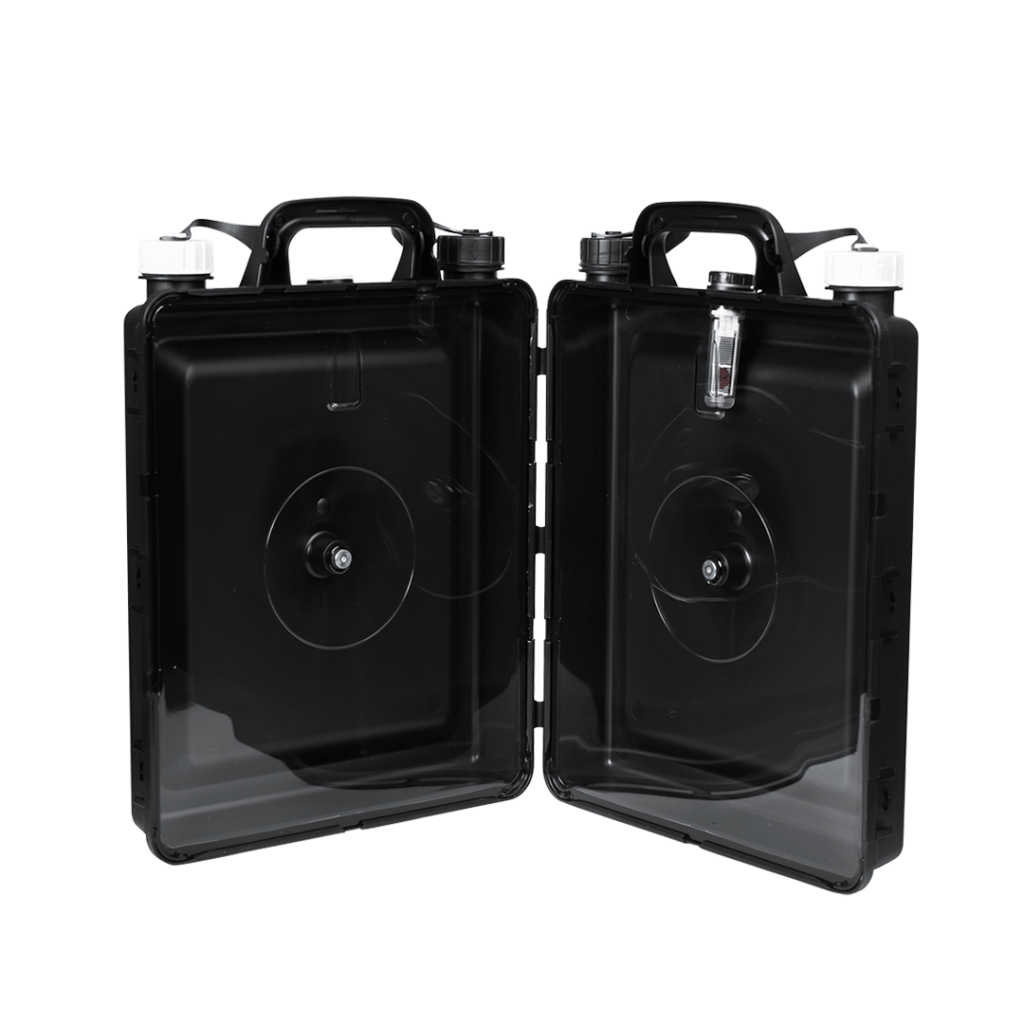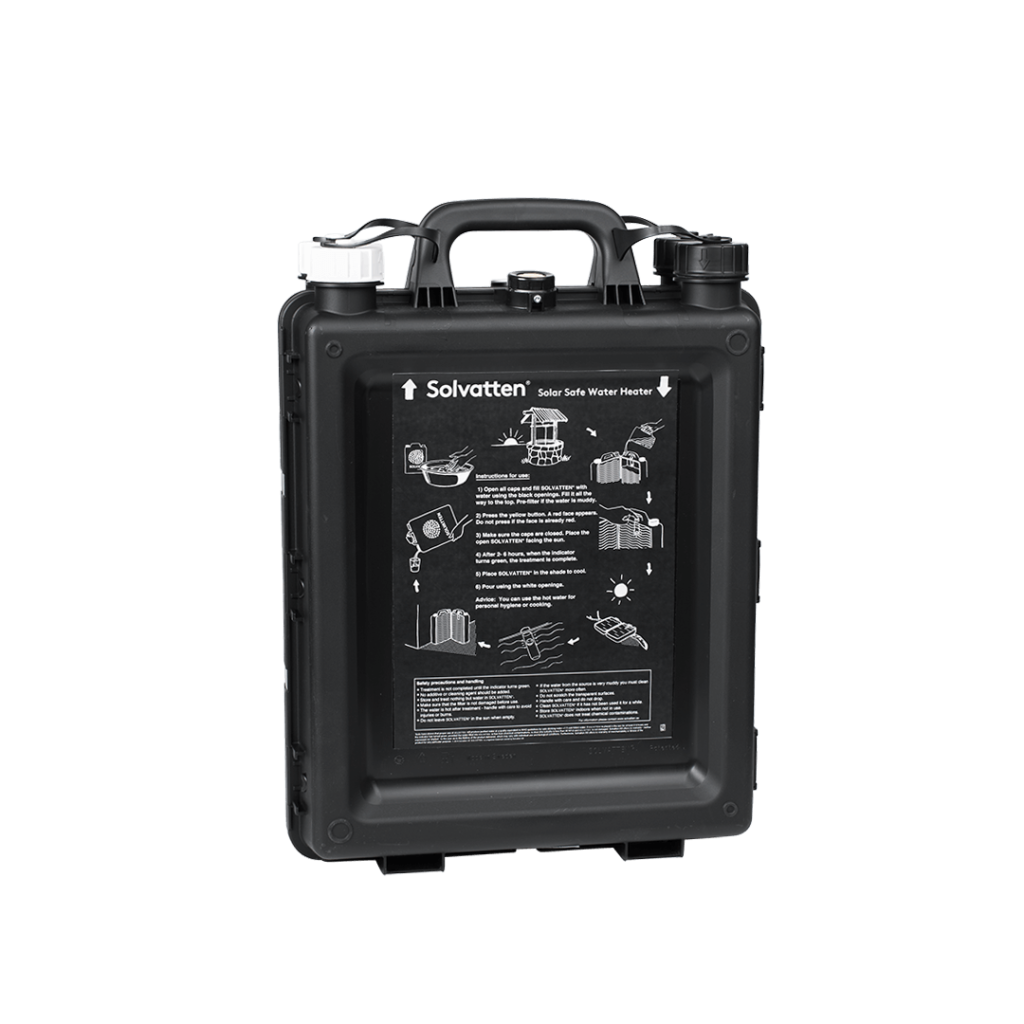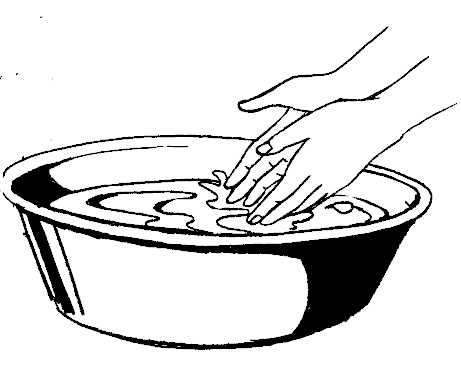Reduce the transmission
The COVID-19 pandemic forces change everywhere. The way we deal with changes now will have impact on many lives and the future. Easy access to hygiene and safe water is key to disease prevention. Solvatten is uniquely positioned to help.
NGOs and government health organizations can mitigate the impact of the virus in urban as well as in rural off-grid communities. Solvatten simplifies the implementation of WHO recommendations to fight Covid 19, especially in deprived areas and refugees in camps through the use solar technology.
Solvatten is a 10-liter jerrycan that provides clean and warm water to improve hygiene for people in need, especially for women and children. It is a unique solution to improve hygiene practices. Atfer exposure to sunlight for a few hours, the water is clean and warm (up to 75°C/167°f). A large number of studies and projects prove that Solvatten allows people to improve their living standards because it delivers a a convenient, no cost solution for the user.
- Provides up to 40 liters per day of clean and warm water
- Easy handling and distribution on household level
- Improves hygiene through easier access to water for washing
- Less social interaction as it eliminates the need to visit a water pump.
- Less social interaction be necessitating less fetching of wood and coal for cooking.
- Use by those infected with Covid-19 infected reduces incidence of other illnesses such as diarrhea, typhoid, viruses, skin infections and others.




Clean, safe and warm water at home
Refugee camps and communities plagued by disease outbreak and in chronic poverty will benefit in short-, medium- and long-term from the assistance of a Solvatten Solar Safe Water System.
Social distancing
To limit risk of spread of disease when people queue at water points, camp managers need to extend the water service by providing water closer to people’s shelter. Solvatten can be used to heat and treat the water inside the shelter before use, helping with social distancing.
Improved hygiene
Warm water really matters more than cold when washing hands with soap. (ref. CDC and UNICEF) Solvatten enables proper warm water hand-washing to no cost.
Safe water
Low cost to achieve 99.9999% germ free water. (WHO standards for water treatment at highest level). All that is needed is sunlight.
Save money on energy
Solvatten reduces energy needs by 50% as it heats water to nearly boiling temperatures (up to +75°C). This not only saves money for the refugee camp, it also reduce need to queue for firewood.
Improved food
The hot water from Solvatten can be used for preparing meals, baking bread etc.
Reduce cost for treatments
Diarrhea, typhoid, virus and skin infections incidence is lower when using Solvatten.
Flexible Solution
Organizations can lend the equipment to households for a specific period to control the spread of disease in a specific camp and then shift and recover units to deploy them elsewhere at another time (they are built to last through more than 6,000 uses per unit.)

FAQ
About Solvatten®
Solvatten is Swedish social enterprise that has developed a solar-driven unit to heat and treat water. The technology and product is called Solvatten, which means “sun water”. Solvatten is a portable and easy-to-use solution that can help a family to heat and treat their water in an environmentally-friendly way for 7-10 years or more. No spare parts, batteries or supplies are needed, just sunlight. There are small- and medium-sized Solvatten. Solvatten is used and implemented in 20+ countries with organizations like UNICEF, UN-Habitat, WWF, Plan, and Oxfam. Our company is a member of the WHO Household Water Treatment and Safe Storage (HWTSS) network and to date we have reached over 370,000 users.
What we offer
Our manufacturing partner is ISO-certified. Upon request, we assist with project tools such as information flyers, monitoring questionnaires and forms, and certificates for promoters. On special request we can supply a specially-constructed indicator that collects data about usage that can then be easily retrieved.
Solvatten in comparison to other technologies
Solvatten is unique in providing both safe and hot water (up to +75°C) while delivering energy benefits. Solvatten makes water safe for drinking at a cost of €0.003 per liter, making it one of the m ost affordable solutions to be found. The units are made of high quality materials and are easily maintained by the user. No spare parts are required so operating costs are negligible. By contrast filters generally need to be replaced every 6 – 12 months and chemical treatments need to be purchased regularly.
Partners see Solvatten as an excellent tool
• Early stage disaster – before large-scale infrastructure is established.
• Areas where surface water or shallow wells are commonly used or where wells have been contaminated.
• Families returning from disaster relief camps.
• Personnel and field offices.
• As a compliment to rainwater harvesting.
Impact
We have high user-acceptance and continued usage. Some reasons for this include:
- Users appreciate the good taste of the treated water – no smokiness or chemical taste – and the savings on fuel.
- It is easy to use the technology
- It empowers women by requiring less time spent on collecting firewood or buying fuel – average savings per month on health and energy amounted to $18 USD per household in a Mali project with UN-Habitat.
Value for money
There is strong evidence that lack of hygiene increases the risk of viral respiratory infections, waterborne and soil-transmittable diseases. Additionally, diarrhea contributes significantly to malnutrition (WHO) . WASH interventions are ‘highly cost-effective’ compared to other health interventions as measured using standardized measures of US$ per Disability-Adjusted-Life-Year averted (one lost year of ”healthy” life)*. Sanitation and hygiene promotion are among the most cost-effective interventions for controlling endemic diarrhea (approximately US$3 per DALY averted for hygiene promotion and US$11 for sanitation promotion). WASH interventions rank higher on this basis than many other health interventions, including combating malaria, tuberculosis and HIV/AIDS.
*Please see the DFID ”Water, Sanitation and Hygiene Portfolio Review”.
